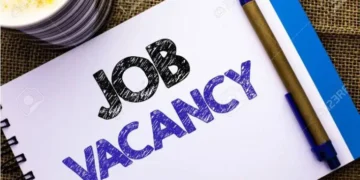Nigeria’s fight against tobacco-related harm has suffered a setback, as the newly launched 2025 Nigeria Tobacco Industry Interference (TII) Index revealed that tobacco companies are increasingly undermining public health and exploiting regulatory gaps. The report, launched on Thursday by Corporate Accountability and Public Participation Africa (CAPPA), showed that Nigeria’s interference score worsened from 60 in 2023 to 62, signaling rising industry influence in policy spaces meant to protect citizens. Out of 100 countries assessed globally, Nigeria now ranks 54th.
CAPPA Executive Director Akinbode Oluwafemi said the report documented how tobacco companies continue to present themselves as partners in national development while operating businesses of addiction, disease, and death. “The tobacco industry is allowed persistent access in Nigeria’s policy spaces, despite the deadly nature of its products, which claim approximately 29,000 Nigerian lives annually and cost the economy an estimated ₦634 billion in healthcare expenses and lost productivity,” he said.
The 2025 Index exposes the industry’s strategic use of corporate social responsibility initiatives – such as donations of boreholes, scholarships, fish farms, and reforestation projects – to improve its public image and gain access to government officials. “These are not acts of generosity. They are calculated attempts to buy legitimacy and access, in direct violation of national laws,” Oluwafemi said.
The report highlighted how tobacco industry interference persists through high-profile appearances by government officials at industry events, opaque reporting of interactions, and the absence of preventive and capacity-building measures for civil servants. Awareness of Article 5.3 of the World Health Organisation Framework Convention on Tobacco Control (WHO-FCTC), which seeks to prevent industry interference, remains low among government personnel.
To counter these threats, the report recommended that the Nigerian government enforce rules prohibiting the tobacco industry from funding or supporting public institutions or events, strengthen conflict-of-interest safeguards, and publicly document all interactions with the industry. It also urged the prompt enforcement of pictorial health warnings covering 60 percent of tobacco packaging, restoration of tobacco taxes to inflation-adjusted WHO and ECOWAS standards, and vigilance against the promotion of new nicotine products marketed as “harm reduction” tools.
Oluwafemi stressed that tobacco control is not just a public health issue but also a governance and development concern. “What is at stake is not only the health of individual smokers but also the health of our democracy, particularly the ability of public institutions to act independently of harmful corporate influence,” he said.









